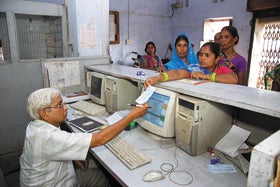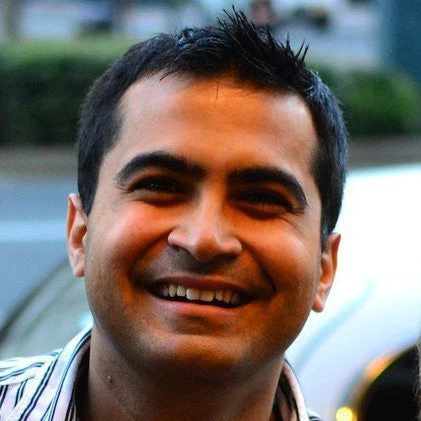 Bihar, a state in Eastern India has more than 100 million inhabitants and is India’s second poorest state. Ninety percent of the population lives in rural areas and the state has lagged behind in increasing access to finance in these areas. The credit-to deposit ratio of Bihar at 37% (an indicator of availability of credit in peri-urban and rural areas) is one of the lowest in India.
Bihar, a state in Eastern India has more than 100 million inhabitants and is India’s second poorest state. Ninety percent of the population lives in rural areas and the state has lagged behind in increasing access to finance in these areas. The credit-to deposit ratio of Bihar at 37% (an indicator of availability of credit in peri-urban and rural areas) is one of the lowest in India.
Jeevika, a program jointly supported by the World Bank and Government of Bihar, has demonstrated that investments in community institutions can deliver significant results. Investments in community institutions have helped them mature and become an institutional platform for the poor enabling them to demand better services from the public sector, improve access to finance from commercial banks and enhance their existing livelihoods.
It all starts with social mobilization- 850,000 women have become members of self-help groups (SHGs), which have been further federated into higher-level federations. Social mobilization has been accompanied with focused efforts to improve both the demand and supply side of credit. The financial capacity of community institutions has been built by helping them manage their own finances, and by providing financial literacy services and education. In addition, the project staff has worked with communities to build a micro-credit and a livelihoods plan. As these institutions reach a certain level of maturity, a one-time revolving fund is given to finance these activities.
Simultaneously, partnerships with financial institutions are facilitated so that these institutions can improve their responsiveness and provide better quality services to poor households. A number of innovative aspects of the partnership have contributed to the successful improvement in service delivery standards. Foremost among these is the role of Bank Mithra (Friend of the Bank) hired by community organizations. Bank Mithra is a young literate member of one of the households of the self-help groups in the village and is trained by the project. The Bank Mithra, stationed at the bank branch, maintains data of the borrowing households, provides financial counseling services, facilitates transactions, builds relationship with the commercial banks, and monitors repayment rates. She is compensated by the community organizations and is accountable to them. Encouraged by these efforts, more than 14 commercial banks have partnered with the communities to create an eco-system for sustainable financial inclusion.
Eventually, access to credit amongst project participants in six districts has improved significantly. Recently, the project reached a major landmark, and successfully completed banks linkages(access to credit through banks) worth 1 billion Indian Rupees (Rs.) in 1 year (~US$18 million), which is almost double of last year. The communities also have savings worth Rs. 500 million. The communities have revolved savings, credit and funds given by the project for inter-loaning purposes. Since 2007, the total financial turnover of households, which have accessed credit multiple times, has been Rs. 5.25 billion, which is approximately Rs. 13,000 per household. However, commercial bank partnerships are only a small part of the comprehensive financial inclusion package facilitated by the project. Community institutions have also enabled improved access to other financial services offered by the public and private sector in Bihar.
Although, financial inclusion is a necessary condition but it is not enough to improve the livelihoods of the poor households. Various innovative livelihoods interventions have been implemented through the community organizations to improve the well-being of poor households.
For more information, please read the feature story.




Join the Conversation